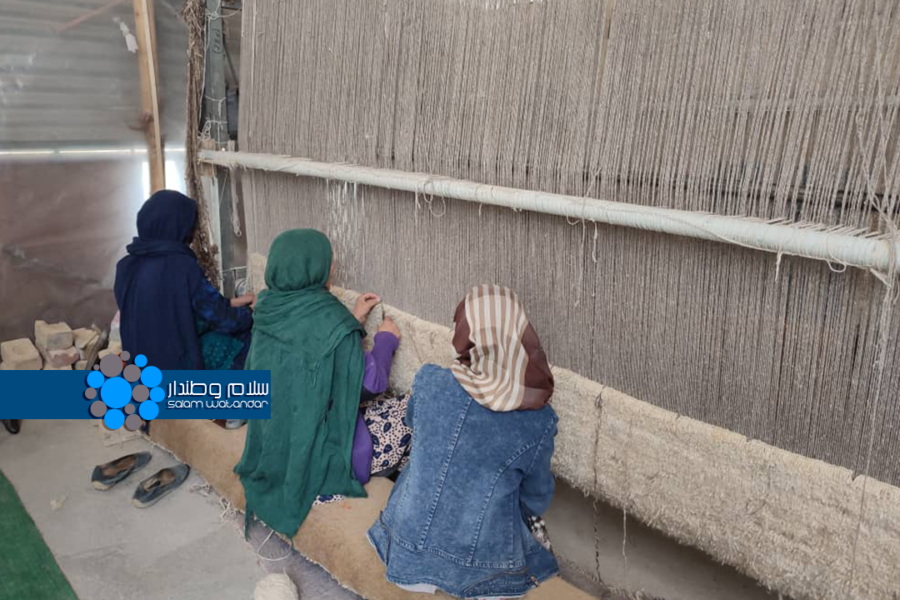KABUL (SW) – Businessmen from several carpet factories report that, although more women have taken up carpet weaving in the past two years, leading to increased production, their efforts are facing stagnation due to a lack of market demand and inadequate export opportunities.
Qasem Elyasi, owner of one of the carpet factories, said that in the factory, 500 employees produce 400 square meters of carpet per month, however, due to insufficient market demand and lack of export avenues, sales are minimal.
“We have many weavers, mostly women, which boosts our production. But there is no domestic market for these carpets due to low demand. We face many problems, including the absence of carpet washing facilities. Our carpets are washed in Pakistan and then exported to other countries,” he said.
Elyasi added that banking sanctions affecting carpet exports and the illegal export of carpets to Pakistan are further challenges to their business.
Mohammad Naeem, owner of another carpet factory in Kabul, notes that due to market limitations and banking restrictions, they are forced to sell their carpets at low prices to neighbouring countries. He explains, “The market is very poor, and our carpets are sent informally to Pakistan before reaching global markets. This process is costly and time-consuming, taking nearly three months. Carpets are sold at high rates, but we receive only low prices.”
According to this factory owner, dozens of women work in 150 carpet weaving workshops at his facility, however, due to the sluggish market, their earnings are minimal.

Nooriya, who recently started a carpet weaving workshop with 13 other women, reports that the lack of export opportunities has made working in the industry challenging. “We produce carpets in various styles including wooden-coloring, Kazak, Belgian, and silk. We complete one 10-meter carpet per month. We lack adequate equipment, and there are no opportunities for export,” she said.
On the other hand, Akhundzada Abdul Salam Jawad, spokesperson for the Ministry of Commerce and Industry, states that the ministry is working to address these issues. He added: “We don’t face any problems with carpet exports as shipments continue through air and land corridors to all regional and neighbouring countries. Issues related to money transfers have also been largely resolved.”
The carpet industry has traditionally been strong in Afghanistan. However, due to increased poverty and restrictions on education and employment for women, many have turned to carpet production and weaving.
The U.S. Agency for International Development (USAID) previously reported that Afghanistan produces 2.1 million square meters of carpets annually.






